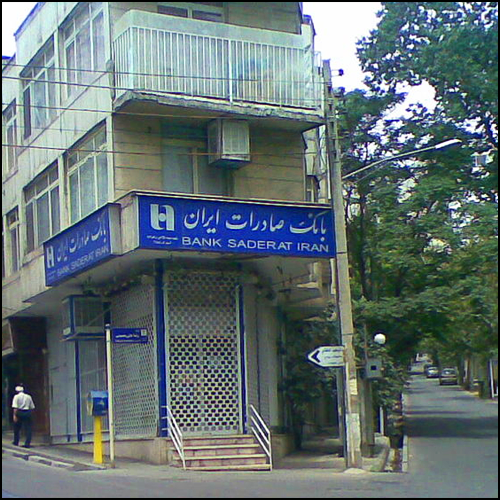 The General Court of the European Court of Justice on February 5 set aside the sanctions that the European Union had imposed on Bank Saderat of Iran. (Bank Saderat was blocked in the United States by the Office of Foreign Assets Control in 2008 under the provisions of Executive Order 13382, meaning that U.S. persons are forbidden to engage in any transactions with the bank and that any of the bank’s assets that come into the possession or control of a U.S. person must be blocked.)
The General Court of the European Court of Justice on February 5 set aside the sanctions that the European Union had imposed on Bank Saderat of Iran. (Bank Saderat was blocked in the United States by the Office of Foreign Assets Control in 2008 under the provisions of Executive Order 13382, meaning that U.S. persons are forbidden to engage in any transactions with the bank and that any of the bank’s assets that come into the possession or control of a U.S. person must be blocked.)
The E.U. Court relied on a number of largely procedural arguments to overturn the E.U. sanctions on Bank Saderat, but two substantive arguments were also relied on by the court, both of which were dubious at best. First, the Court argued that Bank Saderat was no longer owned by the Iranian government and that the 94% share held by the government at the time of the E.U. sanctions had been reduced to a minority position. In fact, according to publicly available documents, the Iranian government is still the largest single shareholder of the bank.  Moreover, the Iranian government’s prior holdings were  spun off to other Iranian government entities.  As a result,   some have forcefully alleged that this was a “fake privatization” and a “scam” designed to escape international sanctions on the bank.
The second substantive ground cited by the E.U. Court was even more preposterous. At issue is whether the bank provided banking services to Iranian entities involved in Iran’s nuclear program. In this regard, Bank Saderat admitted that it processed letters of credit for two companies engaged in nuclear proliferation but argued that these were “ordinary banking services … and that those services did not relate to transactions linked to nuclear proliferation.” It’s hard to understand how this “ordinary banking service” argument would not provide a “get out of jail free” card to any Iranian bank providing services to nuclear proliferators. All banking services can likely be characterized as “ordinary” in some sense, and it is doubtful that any bank is engaged in extraordinary services directly related to proliferation. What would such services be? Does the bank have provide advice on the construction of enrichment centrifuges before it can be sanctioned? And how do you determine what transactions are or are not related to the proliferation activity?
The Court did, however, reject Bank Saderat’s argument, premised on diplomatic cables published by Wikileaks, that the sanctions were the result of undue pressure exerted on European governments by the United States Government. The court noted:
[A]s regards the diplomatic cables, the fact that some Member States were subject to diplomatic pressure, even if proved, does not imply, by itself, that such pressure affected the contested measures which were adopted by the Council or the assessment carried out by the Council when they were adopted.
The E.U. Court’s action here followed closely on earlier action in the last week of January by the Court striking down the E.U. sanctions on Iran’s Bank Mellat

 Posted by
Posted by  Category:
Category: 

 Section 219 of the
Section 219 of the 
 According to this
According to this  During a call today with financial journalists, the Finance Director of Standard Chartered Bank
During a call today with financial journalists, the Finance Director of Standard Chartered Bank 

